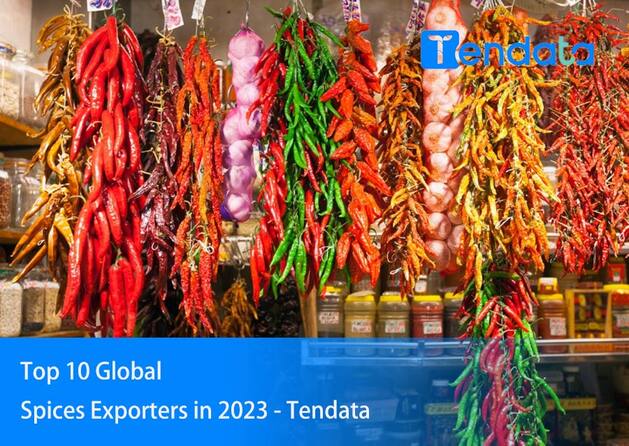 Export News
Export News
 31-07-2023
31-07-2023
In this article, Tendata will explore the main countries or regions that serve as key exporters in Malaysia's palm oil industry. Malaysia, known for its vast palm oil plantations and robust export industry, plays a significant role in the global palm oil market. Understanding the major exporting destinations is crucial for exporters in Malaysia to strategize and expand their market reach effectively.

· Overview of Palm Oil Exports from Malaysia:
Palm oil is a vital commodity for Malaysia, contributing significantly to its export revenue. Malaysia is one of the largest producers and exporters of palm oil globally. The country's favorable climate, abundant land resources, and advanced agricultural practices have made it a prominent player in the palm oil industry. Exporters in Malaysia benefit from the strong demand for palm oil in various sectors, including food, cosmetics, and biofuels.
1. China: A Key Market for Exporters in Malaysia
China is one of the major importers of palm oil from Malaysia, making it a crucial market for exporters in Malaysia. The country's growing population and expanding middle class have led to increased consumption of edible oils, including palm oil. Malaysia's proximity to China and its ability to meet the country's palm oil demand make it a preferred supplier. Exporters in Malaysia should focus on building strong trade relationships with Chinese partners and exploring opportunities to expand their presence in this lucrative market.
2. India: Unlocking Opportunities for Exporters in Malaysia
India is another significant market for palm oil exports from Malaysia, offering great potential for exporters in Malaysia. With its large population and diverse food industry, India relies on palm oil for various applications, including cooking oil, snacks, and processed food products. Exporters in Malaysia should closely monitor the demand and preferences of the Indian market, adapt their products to cater to specific needs, and forge strong partnerships with Indian importers to capitalize on growth opportunities.
3. European Union (EU): Navigating Regulations for Exporters in Malaysia
The European Union is a major destination for Malaysian palm oil exports. However, it is important to note that the EU has implemented stringent regulations and sustainability requirements for palm oil imports. Exporters in Malaysia must ensure compliance with sustainable palm oil standards and engage in responsible practices to maintain market access and meet the evolving sustainability expectations of the EU. Collaborating with European buyers who prioritize sustainability can be beneficial for exporters in Malaysia.
4. Asean Countries: Strengthening Regional Trade for Exporters in Malaysia
The Association of Southeast Asian Nations (ASEAN) region represents an important market for Malaysian palm oil exports. Countries such as Indonesia, Thailand, and Vietnam have a significant demand for palm oil due to their growing populations and food industries. Exporters in Malaysia can leverage the proximity and existing trade agreements within the ASEAN region to expand their market share. Strengthening regional trade partnerships and participating in trade exhibitions and business platforms can help exporters in Malaysia tap into the potential of the ASEAN market.
5. Middle East and North Africa (MENA) Region: Capitalizing on Growing Demand
The MENA region, including countries like Saudi Arabia, United Arab Emirates, and Egypt, is a significant importer of palm oil from Malaysia. The region's preference for palm oil as a cooking oil and its growing food processing industry create opportunities for exporters in Malaysia. Understanding the specific requirements and preferences of the MENA market, such as halal certification, can enable exporters in Malaysia to cater to the region's needs effectively and establish long-term trade relationships.
6. Central and West Africa: Strengthening Trade Partnerships
While Malaysia is a prominent palm oil exporter, it also sources palm oil from other countries for refining and re-export. Central and West African countries, including Nigeria and Ivory Coast, are major suppliers of crude palm oil to Malaysia. This highlights the importance of trade partnerships and collaboration among palm oil-producing nations. Exporters in Malaysia can explore opportunities for joint ventures, technical collaborations, and knowledge-sharing initiatives with Central and West African counterparts to strengthen the palm oil industry as a whole.
>>>Click to Request A Free Demo - Know For Your New Markets<<<
Conclusion:
Understanding the main countries and regions that serve as major palm oil exporters from Malaysia is crucial for exporters in Malaysia to optimize their market strategies. China, India, the European Union, ASEAN countries, the MENA region, and Central and West Africa represent significant export markets for Malaysian palm oil. Exporters in Malaysia should monitor market trends, comply with sustainability standards, and adapt their products to meet specific market requirements. By capitalizing on these opportunities and maintaining strong trade relationships, exporters in Malaysia can enhance their competitiveness and contribute to the growth of the palm oil industry.
You may also want to know:
1. Global Import and Export News
2. Keeping up with Global Import Data
3. Real-Time Access to International Export Data
4. Learn How These Import Export News Can Help Your Import Export Business?
- Specific Trade Data to Help You Analyze Where to Go Next.
Category
Leave Message for Demo Request or Questions


 T-info
T-info T-discovery
T-discovery

 My
Tendata
My
Tendata Market Analysis
Market Analysis Customer
Development
Customer
Development Competitor
Monitoring
Competitor
Monitoring Customer Relationship
Customer Relationship






































































































































